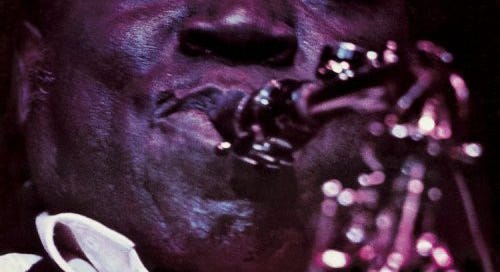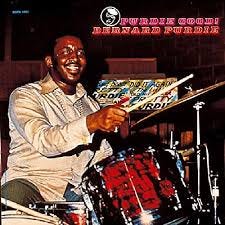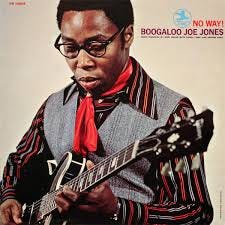Here today to celebrate the Pretty Good. And Purdie Good!, the 1971 Prestige album from drummer Bernard Purdie that was one of a zillion solid and decent soul-jazz efforts from the late ‘60s and early ‘70s.
Recently reissued (on purple vinyl) by Jazz Dispensary/Craft Recordings, it’s a great place to begin in the new year. Because for more than a month, critics and pundits have been windbagging over the most significant artistic accomplishments of 2020, hailing works that belong in the time capsule. As these lists glorify the exceptional, they offer us a lens through which to consider what “best” means in terms of art – what might be an agreed-upon notion of quality. But that emphasis on bestness can distort the playing field: Not everyone is Fiona Apple, and records like her transfixing Fetch the Bolt Cutters do not appear on streaming services every week.
Instead, there is more workmanlike work.
Talking about the records made in a day or two, on the cheap, during an era when record-making was not as much about an artistic statement as a paycheck. The records commissioned by a label that wanted to break off a piece of a hot trend. These are part of the story of American music, arguably a vital part. You can find examples of the competent unexceptional in early blues and folk, in big band dance music and hard-bop jazz, in rock and R&B and salsa. There are titles that fit this description in Frank Sinatra’s catalog. There are scores of examples in hard rock of the mid 1970s. Sometimes these albums can reveal more about the prevailing winds within a scene than the records that are the agreed-upon masterworks.
And sometimes they’re just pure delight.
That’s the case with two 1971 titles on Prestige featuring master drummer Purdie – his Purdie Good! and guitarist Boogaloo Joe Jones’ No Way, which has some savory tenor saxophone moments from Grover Washington Jr. and a stirring cover of “Georgia On My Mind.” (Today, that track feels at once timeless and exceedingly timely.)
In the big-picture discographical overview, these are easy to miss – baby steps in the making of reputations, captured during a year when the soul-jazz thing was either near its peak or already suffering from over-saturation. They’re typical work product, which sounds like a slight but really isn’t: In any field, appreciating the exceptional involves knowing what the ordinary sounds like.
Starting with a spry version of James Brown’s “Cold Sweat,” Purdie Good! offers another window into Purdie’s restrained, tasteful approach to rhythm, which was well entrenched in the culture before this date (he turned up on 18 albums in 1969) and extends to classics by Steely Dan and more recent others. Purdie is a key part of the evolution of groove; he’s prototypical, foundational. Just as drummers like Roy Haynes established the guiding principles of swing, Purdie – who recorded with Brown and was Aretha Franklin’s musical director when this record was made – developed and codified an unflashy, pervasively addictive time concept for straight-8th funk.
[ To hear this approach in full unfiltered blaze, check the iconic 1971 release King Curtis Live at the Fillmore West, which finds Purdie tearing it up with Curtis, Billy Preston (organ) and Cornell Dupree (guitar).]
Rhythm is at the center of Purdie Good!, throughout the somewhat bland originals and a cover of “Everybody’s Talkin’” that never reaches cruising altitude. If you’re still listening after “Cold Sweat,” it’s not for the compositions – it’s to hear Purdie take things higher, using slight, exceedingly crisp gestures to make the groove interesting. And keep it that way.
The drummer is just a sideman on Jones’ No Way, yet he guides and shapes and cultivates interaction as though it’s his date: This album is a master class on the ways a drummer can inspire musicians through understated, perfectly executed rhythmic variation. Again there are timid soul-jazz versions of pop songs (The Jackson Five’s “I’ll Be There” was described by one reviewer as “undistinguished”) alongside Jones originals like the loping medium-tempo blues “Holdin’ Back.” That track showcases Jones in a basic small-group jazz context, with his spry big-toned guitar running with Washington’s equally big tenor and pealing organ from Butch Cornell. It’s nothing fancy, just the kind of loose, open-ended excursion these musicians took every time they played in public. And it feels great from start to finish.
Sometimes that’s more than enough.
Yes, we have a fancy digital suggestion box. Share your favorite Underloved/Overlooked records here: echolocator@gmail.com.
Please consider subscribing (it’s free!). And…..please spread the word! (This only works via word of mouth!)
Subscribe here.







